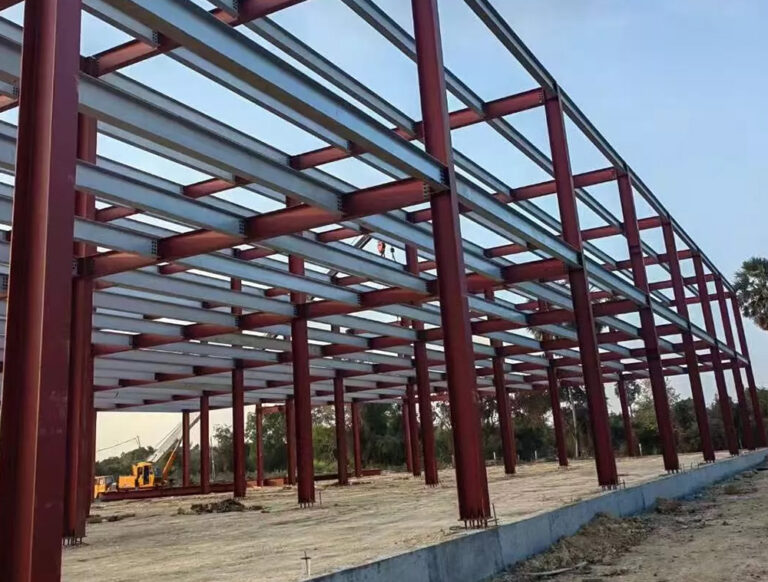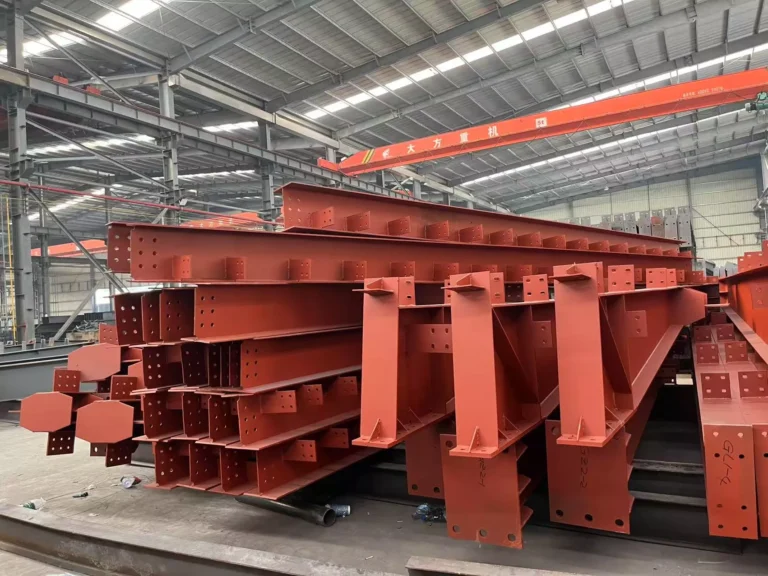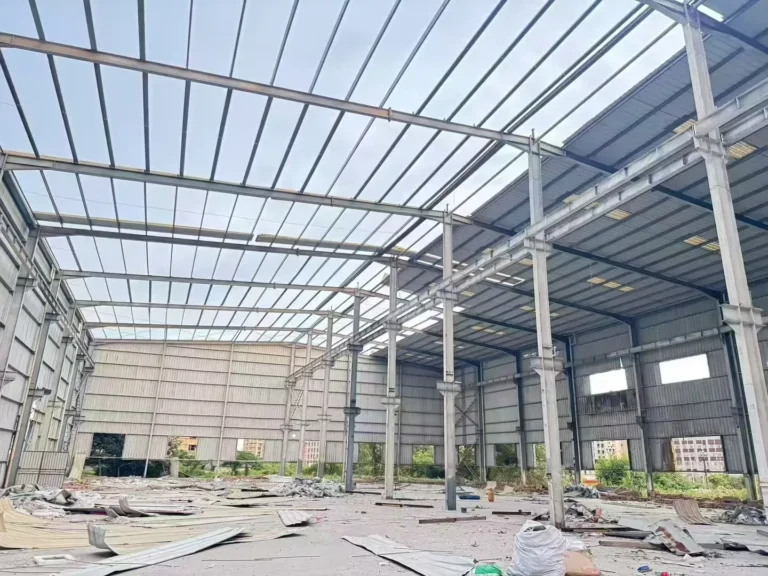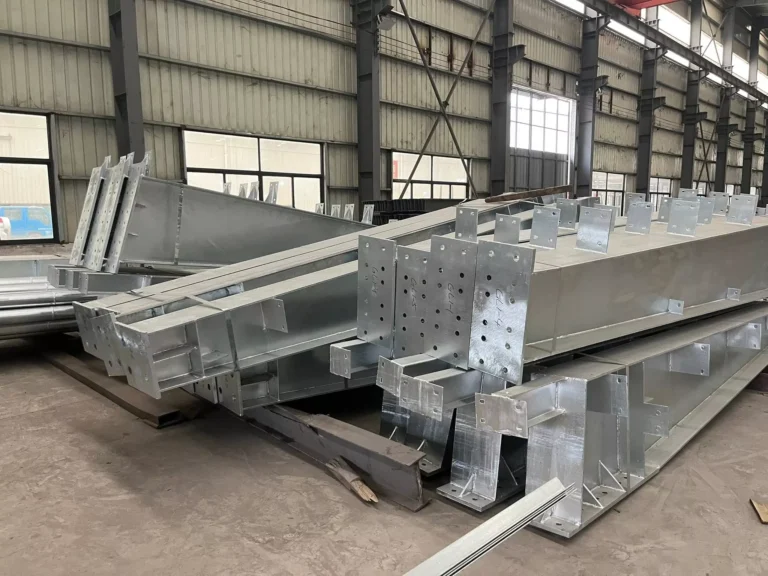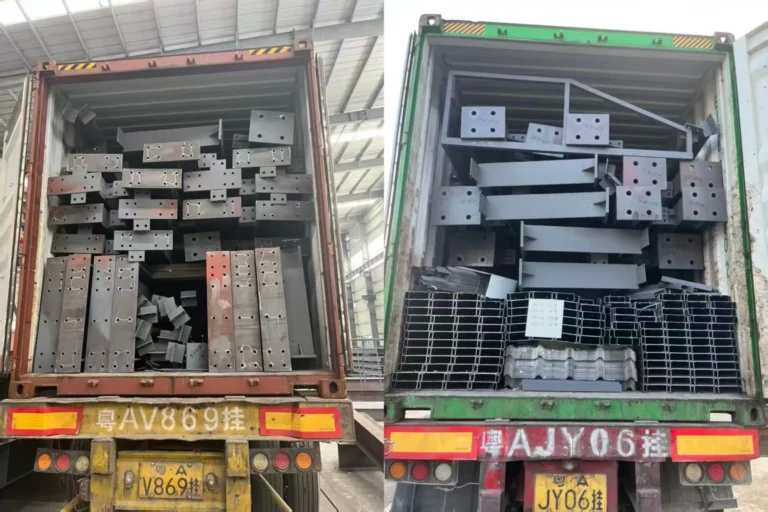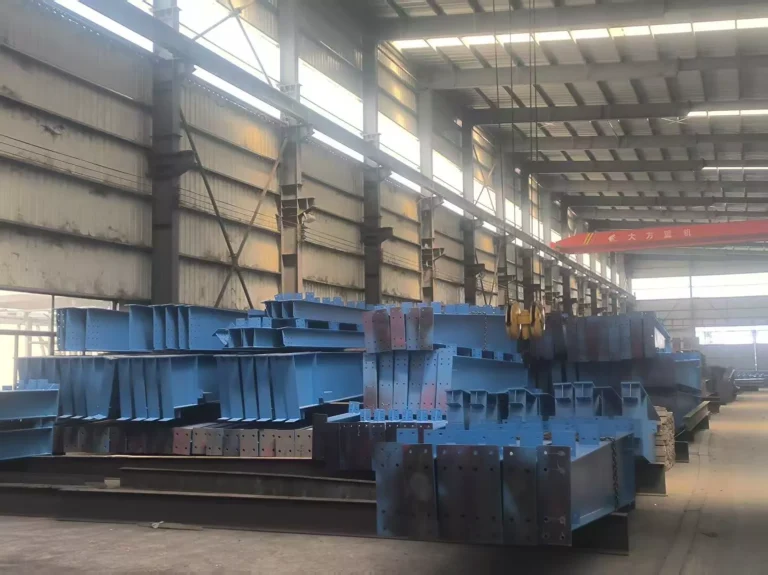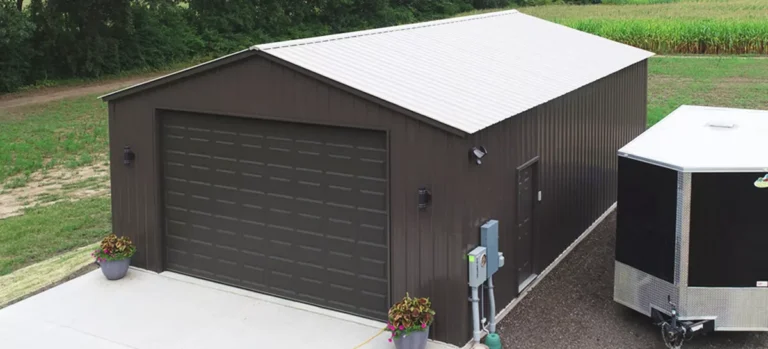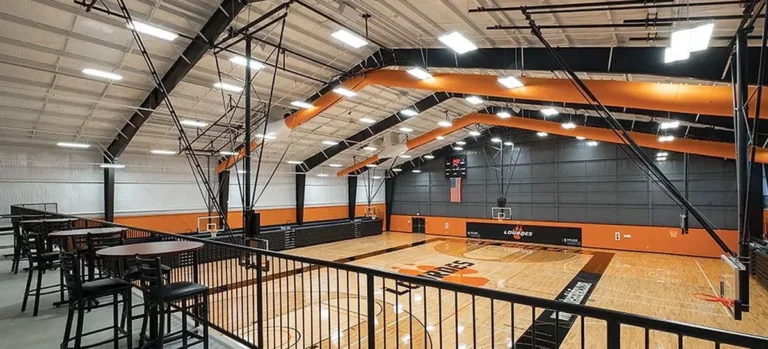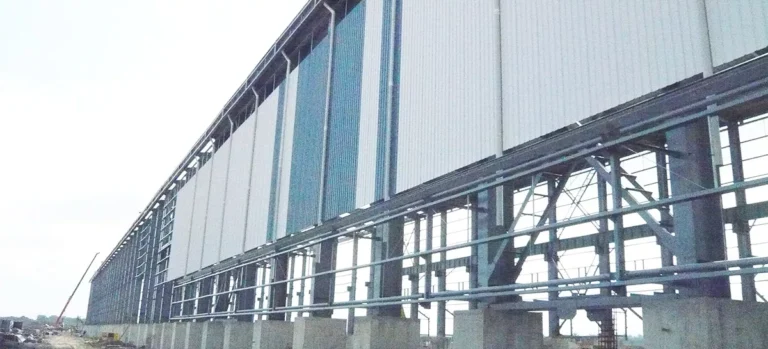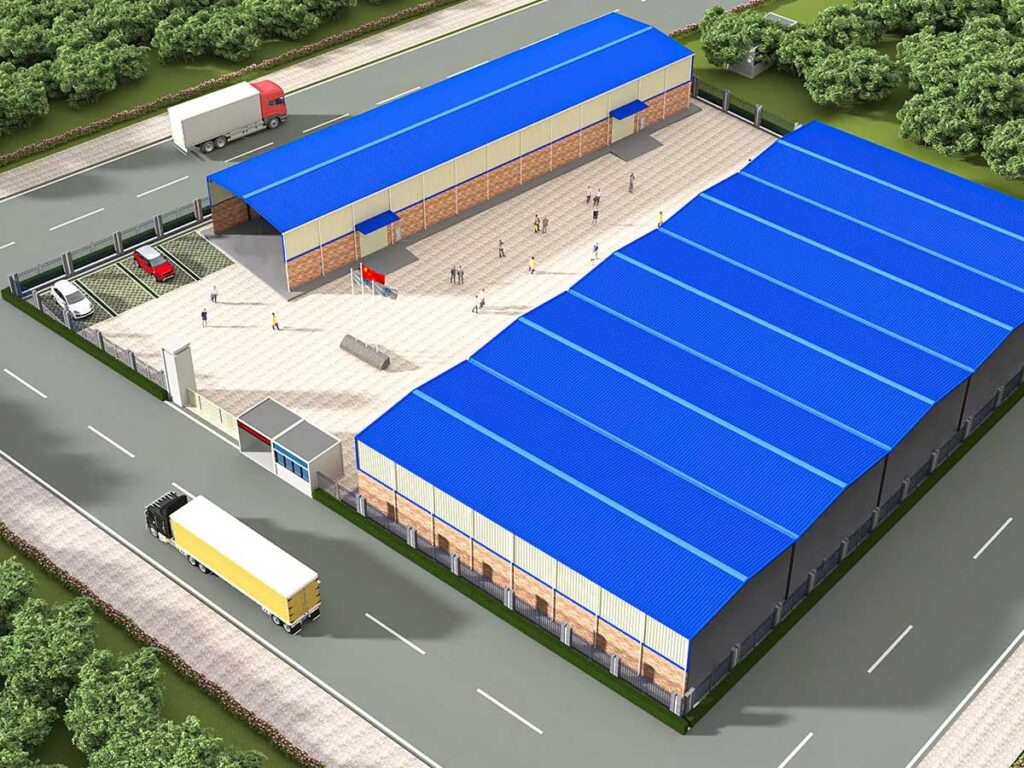
When constructing a workshop, selecting the right building material is critical for ensuring durability, functionality, and cost-efficiency. Traditional materials like concrete have long been used in the construction industry, but steel has rapidly emerged as a superior alternative. At Ganyo Steel Structure, we specialize in providing high-quality steel building solutions that meet the diverse needs of modern workshops. In this blog, we will compare steel with traditional building materials and highlight why steel is the best choice for your workshop.
1. Durability and Longevity
Steel:Steel is renowned for its exceptional strength and durability. It can withstand harsh environmental conditions, including heavy snow, strong winds, and seismic activities, without compromising its structural integrity. Steel is also resistant to pests, rot, and fire, ensuring a longer lifespan and reduced maintenance costs.
Concrete:Concrete is durable but can crack and deteriorate over time due to weathering and freeze-thaw cycles, requiring costly repairs. Additionally, concrete structures may need reinforcement to handle seismic activities, which can add to construction costs.
Winner: Steel
2. Cost-Efficiency
Steel:The initial investment in steel construction can be lower than traditional materials due to the prefabrication process, which reduces labor costs and construction time. Steel structures require minimal maintenance, translating to lower long-term expenses. The durability of steel also means fewer repairs and replacements.
Concrete:Concrete constructions often involve higher labor costs and longer build times. Maintenance and repair costs for concrete can accumulate over time, making it more expensive in the long run.
Winner: Steel
3. Speed of Construction
Steel:Steel structures are typically prefabricated off-site and then assembled on location. This process significantly reduces construction time, allowing for faster project completion and minimal disruption to your business operations.
Concrete:Building with concrete often requires lengthy on-site construction processes, including curing times, leading to longer project timelines and potential delays.
Winner: Steel
4. Versatility and Flexibility
Steel:Steel’s versatility allows for a wide range of design possibilities, making it suitable for various industrial applications. Whether you need a clear-span construction for an open workshop or a customized layout to fit specific operational needs, steel can accommodate your requirements. Steel structures can also be easily expanded or modified as your business grows.
Concrete:While concrete can be used to create various designs, it lacks the flexibility and ease of modification that steel offers. Expanding or altering concrete structures can be more challenging and costly.
Winner: Steel
5. Sustainability
Steel:Steel is an environmentally friendly building material, as it is 100% recyclable and can be reused without losing its properties. The use of steel reduces the need for raw materials and minimizes construction waste. Additionally, steel structures can be designed to be energy-efficient, incorporating features such as insulated panels and reflective roofing to reduce energy consumption.
Concrete:Concrete production is energy-intensive and generates significant carbon emissions, making it less environmentally friendly. Although concrete can be recycled, the process is more complex and less efficient compared to steel recycling.
Winner: Steel
6. Safety and Security
Steel:Steel structures provide enhanced safety and security for your assets and personnel. The inherent strength of steel offers robust protection against unauthorized access and environmental threats. Steel’s fire-resistant properties also ensure a safer working environment.
Concrete:Concrete is fire-resistant but can crack under stress, compromising structural integrity. While concrete offers some security, it may not provide the same level of robustness and safety as steel.
Winner: Steel
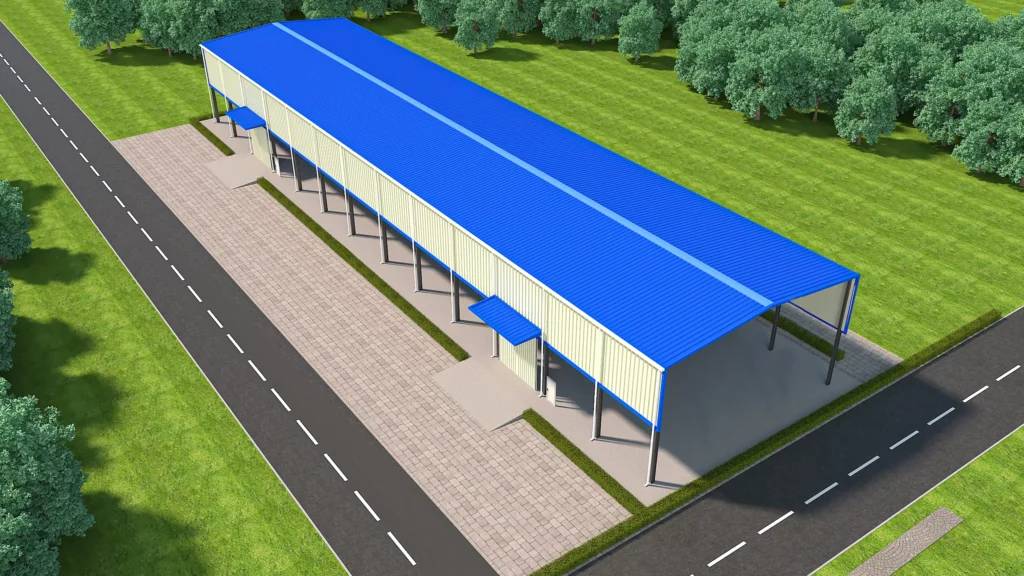
Conclusion
When it comes to building a workshop, steel clearly outperforms traditional materials like concrete in terms of durability, cost-efficiency, speed of construction, versatility, sustainability, and safety. At Ganyo Steel Structure, we are committed to providing top-tier steel building solutions that meet the highest standards of quality and performance. Choosing steel for your workshop ensures a resilient, efficient, and future-proof workspace that can adapt to your evolving business needs.
For more information about our steel building solutions, please contact us at lizzy@ganyosteelbuilding.com. Let Ganyo Steel Structure help you build a workshop that stands the test of time.nyosteelbuilding.com. Let Ganyo Steel Structure help you build a stronger, more efficient future.difference. For further questions, please contact us at lizzy@ganyosteelbuilding.com.

